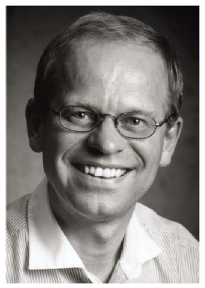
Professor of Complex Systems and Biophysics, dr. scient. (D.Sc.),
Niels Bohr Institute, University of Copenhagen
Member of Biocomplexity Group.
President, Royal Danish Academy of Science and Letters. (until 2021).
Head of BioNET (2005-2015),
Co-Director of Center for Models of Life (2004-1014).
Office Telephone: +45 353 25371
Mobile: +45 28755371
Email: mhjensen@nbi.dk
Office: Kb-7, Blegdamsvej 17, DK-2100 Copenhagen Ø.
Summary of CV:
Published more than 230 scientific articles in refereed journals.
Given over 250 invited lectures at International Conferences.
17000 citations.
Most cited publication: 4620 citations, Physical Review A 33,
1141 (1986).
Author of 1 book (870 citations) and editor of two books.
H-index: ~ 55.
Supervisor for 45 Ph.D.-students, 32 post docs, and around 60 M.S. students.
Member of the Royal Danish Academy of Science and Letters (from 2000).
Secretary General of the Royal Danish Academy of Science and Letters (2012-2016).
President of the Royal Danish Academy of Science and Letters (2016-2020).
Knighted by Queen Margrethe II (2017), knighted to first degree (2020).
Organizer or co-organizer of 36 international conferences/summer schools/workshops.
Associate Editor Physica A, Life and Quantitative Biology.
Summary of research interests:
We study
complex phenomena in nature in a broad sense.
In particular we have investigated
chaos, fractals and oscillations in non-linear systems. With collaborators at the University of Chicago we introduced
the
multifractal formalism which has
been applied to a large variety of systems in science and nature.
A main interest has been to study
intermittency in turbulence,
in particular using
shells models.
We introduced the
inverse structure functions in
turbulence and have applied similar ideas
to introduce
inverse statistics on financial time series,
discovering the
asymmetry of financial
markets.
In recent years we have worked on
genetic networks in particular relating to
the important
transcription factors p53, NF-kB and Wnt.
These are fundamental regulators in
DNA-repair, apoptosis and inflammation and show often
oscillatory behavior. In this connection
we study how
oscillatory external stimuli might induce chaos and
mode-locking inside cells. In particular we are interested in cases
where Arnold tongues appear and their influence on biological properties.
We have recently shown that
condensates of repair proteins are formed around
the danage sites.
The oscillations of p53 are beneficial for
avoiding Ostwald ripening
thus ensuring optical repair processes.
We also investigate the pathway of the WRN helicase and its
relation to the p53 regulation. We are in particular interested in how temporal and spatial
behaviors interact in genetic regulation, both inside cells and during
tissue growth.
We do research on
population genetics of plankton and bacteria
in strongly turbulent flows. In particular how the different species will out-compete each
other due to the turbulent behavior.
As an overall theme for our present research
we are interested in
complex behavior from small scales (cells) to
large scales (oceans and atmosphere).
Mogens Høgh Jensen was in January 2011 awarded the
prestigious Gunnar Randers Physics Prize of Norwegian Science. The prize was handed out by King Harald at a ceremony in Oslo, May 5, 2011.
The quotation says:
For M.H. Jensen's
groundbreaking basic research on complex matter systems. M.H. Jensen has
delivered outstanding contributions to many problems in modern physics,
especially concerning phase transitions and critical phenomena, as well as in
the theory of chaos, turbulence and complex systems. His works have lead to
increased fundamental understanding inside many areas of materials science,
complex materials, and processes in biological systems.
 Professor of Complex Systems and Biophysics, dr. scient. (D.Sc.),
Professor of Complex Systems and Biophysics, dr. scient. (D.Sc.),